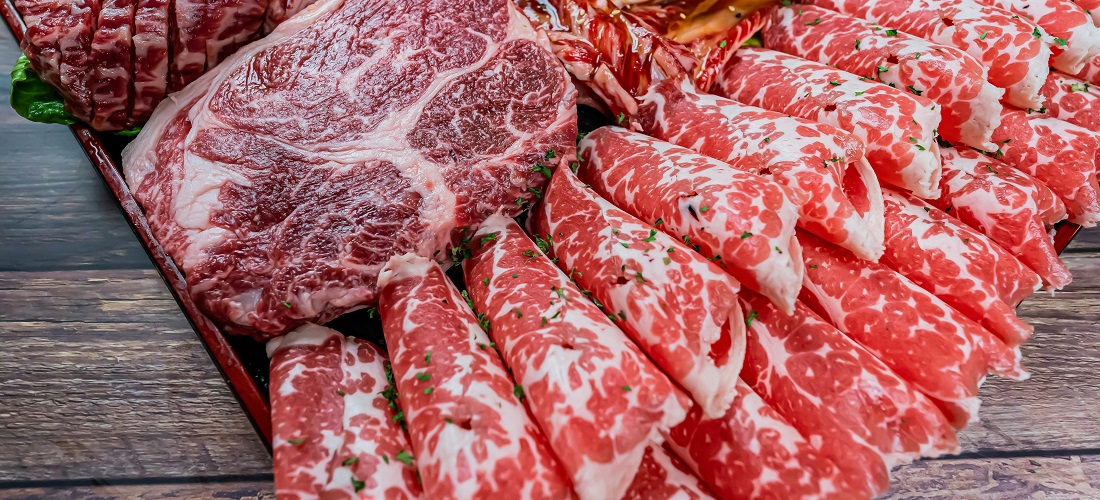
US hit by fall in meat exports as China scales back and Brazil steps up
Jul, 22, 2024 Posted by Gabriel MalheirosWeek 202410
US meat exports are in low gear, affected by bans in the largest market, slowing demand and rising competition from Brazil.
In May, US bovine meat exports were down 0.2% from April and 2.9% year on year, while port exports slumped 10.9% from April to end up 5.7% lower than a year ago.
Still, pork exports were up 6% in the first five months, whereas beef export tonnage dropped 4.9%.
“The market is relatively soft at this point,” said Jean-Paul Weber, SVP sales at PCC Logistics, which operates out of five locations on the US west coast.
Demand in Taiwan and Korea has remained solid, while traffic to Japan has declined as the yen sank to ¥161 to the dollar, Mr Weber said.
China, which rose to the top spot of global beef importers in 2019, and the third-largest market for US beef exports, has lost some appetite.
“Beef still goes to China, but in lower numbers,” Mr Weber reported.
Faced with deteriorating economic conditions, Chinese consumers have traded down from prime meats to less-pricey options, including intestines and offal, which has kept pork exports relatively stable, he noted.
A 20% tariff on US pork imports entering China has not helped American exporters. They are now looking at the trade spat between Beijing and the EU, which has seen China launch an anti-dumping probe into pork from Europe.
And US poultry exports to China have been hobbled by import bans to prevent the spread of avian flu since 2022. The most recent in April, when Hong Kong banned poultry meat and products (including eggs) from Michigan and Texas.
In May, US meat exports found themselves on the receiving end of bans on meat from a temperature-controlled transit facility at the port of Oakland and a beef processing plant in Colorado, after Chinese inspectors detected traces of a banned feed additive.
PCC Logistics COO Brandon McDonnell pointed out that the bans were implemented on the same day that Beijing lifted bans on five Australian meat processors that had been delisted four years ago. While relations between Beijing and Washington have been rather frosty, China and Australia have mended fences since a new government took over in Canberra in 2022.
Trade statistics do not paint a clear picture of divergent trends in these tradelanes. US beef exports to Chine decreased last year, to 166m tonnes, down from 192m tonnes the previous year, while Australian beef shipments to China jumped from 185m tonnes in 2022 to 228m last year. On the other hand, Chinese beef imports from Australia slumped 26% in the first four months of this year, whereas US beef exports were up 7%. Overall, China’s beef imports fell 18% in the period.
But arguably, a bigger worry for US exporters is Brazil, which saw beef exports soar 27% in the first half of this year to a new high.
Traffic to China – the top market – climbed 10.2%, the UAE vaulted into second rank, with a 238% rise, and to the US, in third place, they were up 19.7%.
Mr Weber said that Brazil was becoming a force to be reckoned with, adding: “It’s always been strong in beef and poultry.”
The chart below compares shipments of beef from Brazil registered between January and May 2021 all the way to the equivalent months in 2024. The information featured below comes from Datamar’s top-notch business intelligence service DataLiner.
Beef Exports to China | Jan-May 2021 to Jan-May 2024 | TEUs
Source: DataLiner (click here to request a demo)
PCC’s transloading activities of protein have not been hit by the recent bans on beef, but they are showing an impact from a growing trend among meat exporters to load their shipments into ocean containers at origin.
“It allows exporters to bypass transloading into export containers at the ports,” noted Mr Weber. In part, this trend is a reflection of carriers having additional capacity to move empty boxes inland, he added.
This is a stark contrast with the situation in 2022, when shippers were struggling to get their hands on containers. On balance, most shippers would probably prefer to see rising demand in Asia and fewer regulatory hurdles for exports.
-
Economy
Jan, 03, 2022
0
The year ends with trade balance on a surplus of US$ 61 billion
-
Other Logistics
Oct, 02, 2023
0
Cedro to invest R$1.8bn in Serra Azul railroad
-
Dec, 07, 2021
0
China’s recession slows demand for Brazilian pork
-
Other Cargo
Nov, 14, 2024
0
Solar panel imports have already exceeded 53% of the tax-exempt quota

